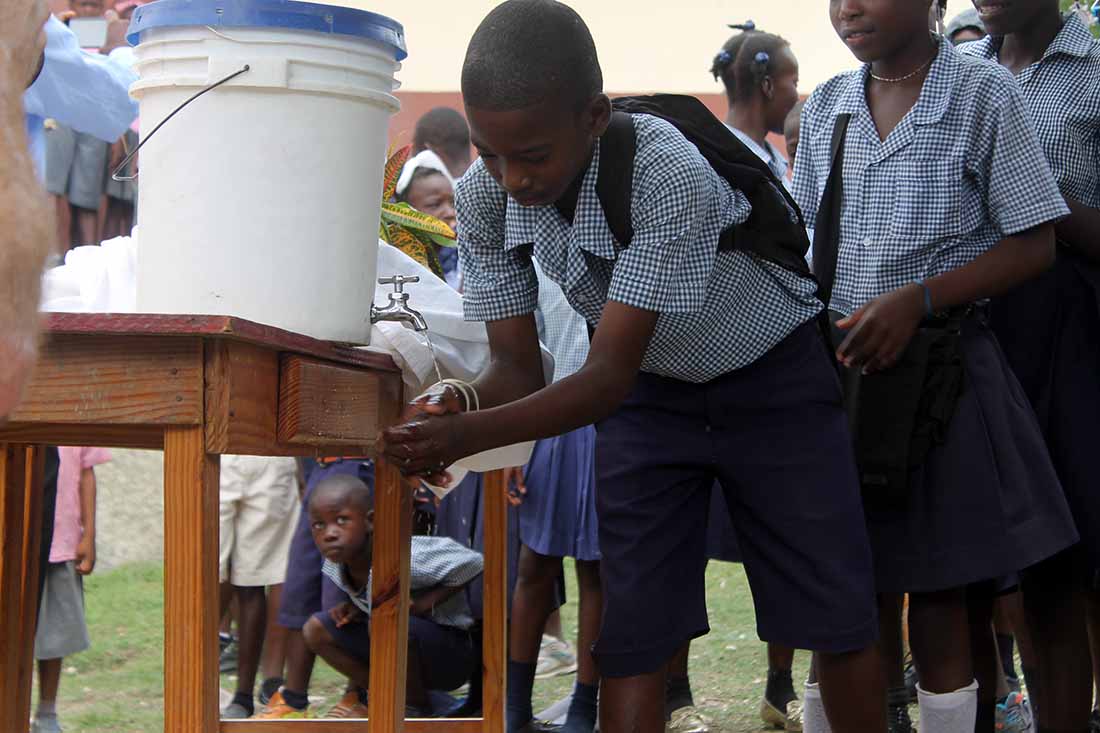
H
aiti is the most underserved country in the western hemisphere in terms of water and sanitation infrastructure by a wide margin. Only 69 percent of the population has access to an improved water source and 17 percent had access to improved sanitation facilities in 2010. This lack of access was likely exacerbated by the earthquake that struck Haiti in January of that year.1
This laid foundation for the rapid spread of cholera, a dreaded, costly and life-threatening disease that was reintroduced into Haiti in 2010. Once re-established, cholera found a firm foothold with the annual flooding in the densely populated coastal lowlands and inland floodplains where rice is grown. Then, massive Hurricane Matthew devastated Haiti’s Southern peninsula and back-to-back tropical storms caused widespread flooding in Haiti’s northern peninsula.
IMA is assisting the Ministry of Health to strengthen its current cholera vaccination campaign by promoting the linkages between the campaign and the network of community leaders IMA developed under the ENVISION Program. IMA is also working on mobilizing resources for the development of a sustainable community-based program for cholera prevention and control built on community- and school-led sanitation, hygiene and health promotion.
IMA’s current WASH program stemmed from a 2015 Ministry of Health study that showed there was a high prevalence of soil-transmitted helminthiases in all departments and localities of the country. The study showed that children and adults are being continuously exposed to the high environmental contamination that comes from communities relieving themselves in open spaces due to lack of access to toilets. With the support of Episcopal Relief & Development, IMA Haiti selected 60 schools in three departments in Southern Haiti where the prevalence of soil-transmitted intestinal worms is high, which is an indication of higher risk of contracting a range of diseases due to lack of access to water and sanitation facilities and related unhygienic practices.
The IMA WASH project is using the schools to be hubs for hygiene promotion within the schools and through the schools to households. Messages and new practices promoted by children engaged in school hygiene clubs and lessons learned through improved WASH lesson plans are being reinforced by matching and reinforcing messages delivered by pastors and local church groups who are participating in testing new sermon guides. Both of these channels are important avenues for changing household water and sanitation related practices and are being reinforced by complementary water and sanitation promoting messages through popular local radios.
This year’s World Toilet Day theme, Toilets and Jobs, made the IMA Haiti team reflect on the fact that the Episcopal Relief & Development-supported school WASH sanitation infrastructure development program has generated is a positive byproduct of the sanitation infrastructure development in schools. It is also improving access for teachers to WASH facilities. In addition to known health benefits, the project allows a more regular participation of young female teachers when their physiological needs would have otherwise been pressuring them to stay at home. It also made the IMA team realize that lack of toilets in the workplace is one of the potentially underestimated causes of teacher absenteeism!
—Article by IMA Haiti WASH team
1Richard Gelting et al (2013) Water, Sanitation and Hygiene in Haiti: Past, Present, and Future The American Society of Tropical Medicine and Hygiene 89(4), 2013, pp. 665–670 Accessed 18 November 2016 from https://www.ncbi.nlm.nih.gov/pmc/articles/PMC3795096/pdf/tropmed-89-665.pdf


